On-Demand Outsourcing BPO Services for Healthcare Providers With 24/7 Coverage!
Save up to 70% on staffing costs!
Browse Specialty Staffing Services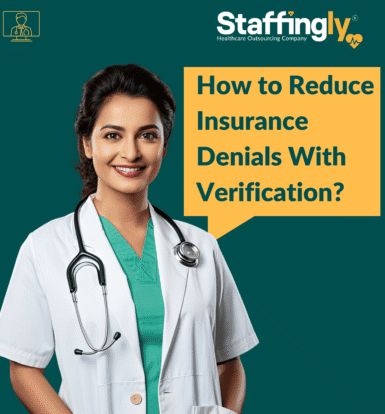
How to Reduce Insurance Denials With Verification?
Healthcare professionals continue to share frustration about insurance verification gaps. One provider described: “We are having issues with getting insurance verification benefits resulting in denials and loss of revenue. Front desk staff is not doing their job properly causing headaches with billing.” This single comment reflects a wider issue across hospitals and clinics. Missed or incomplete insurance verification leads to denials, delayed payments, and dissatisfied patients. The challenge has sparked conversations about whether software can solve the problem, which EMRs
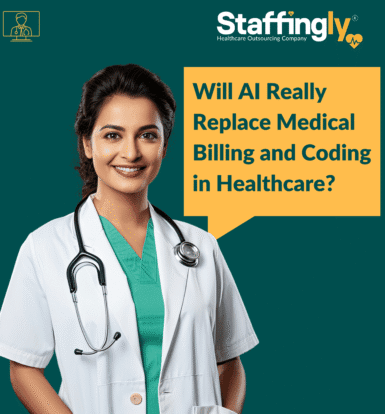
Will AI Really Replace Medical Billing and Coding in Healthcare?
A healthcare billing specialist recently posted: “Do you guys see medical billing and coding being replaced by AI, or is it unlikely? Have you used AI at your work yet?” That single question sparked a heated debate among coders, RCM experts, and healthcare administrators. Some said their hospitals already use AI for claim scrubbing and coding. Others shared horror stories of “hundreds of denials” from basic errors. One coder summed up the sentiment: “AI saves time, but we spend twice
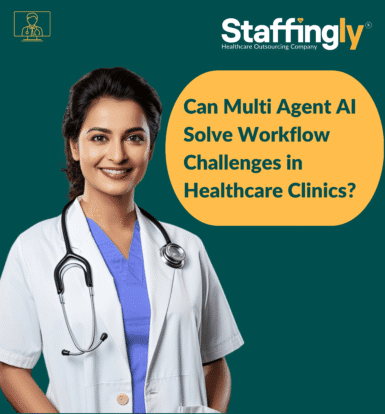
Can Multi Agent AI Solve Workflow Challenges in Healthcare Clinics?
Healthcare professionals continue to share frustrations with single-purpose AI tools that fail to connect into real clinic workflows. One user explained the reality: “The multi-agent approach addresses a real problem, most healthcare AI tools solve individual pain points but don’t connect into seamless workflows, leaving clinics with fragmented solutions.” Although surveys show excitement for AI, only 17 percent of long-term-care leaders report that current tools are useful. The gap between expectations and actual results is wide. Many professionals say integration

What Matters First: HIPAA Compliance in Healthcare Outsourcing Success?
A small healthcare outsourcing founder recently shared: “We’re trying to get our first client, but everyone keeps asking for HIPAA compliance. We haven’t even touched PHI yet — how do we start?” That question echoes across every healthcare outsourcing forum. On one hand, HIPAA compliance is non-negotiable — the law is absolute once Protected Health Information (PHI) is involved. On the other, smaller firms feel the pressure to invest in compliance long before revenue begins. As one compliance officer joked

How Does Patient Call Tracking Software Ensure Security and Accuracy in Medical Coding Under HIPAA?
Every clinic handles dozens of patient phone calls daily appointment requests, insurance questions, medication refills, billing disputes. But what many practices don’t realize is this: those calls are the starting point for medical coding and billing accuracy. 💬 “We once lost thousands in revenue because the patient’s insurance details from the call weren’t logged correctly.” When calls are mishandled, incomplete, or unsecured, clinics face not just denials but serious HIPAA compliance risks. Patient call tracking software transforms these conversations from
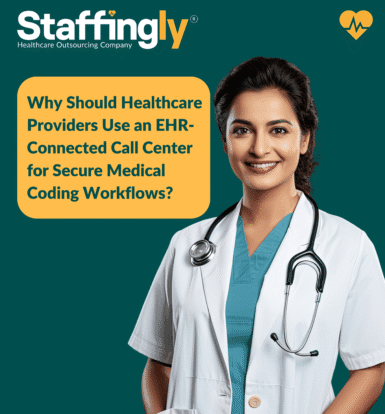
Why Should Healthcare Providers Use an EHR-Connected Call Center for Secure Medical Coding Workflows?
Every call into a clinic holds important details symptoms, medication requests, prior visit updates, or insurance clarifications. Yet too often, those details live only in call notes or voicemail, never making it into the EHR. When documentation is incomplete, medical coding becomes inaccurate, reimbursement slows, and HIPAA compliance is jeopardized. 💬 “We once had a billing error because a patient’s after-hours call was never documented in the EHR.” Without seamless connection between call centers and EHRs, providers risk errors that
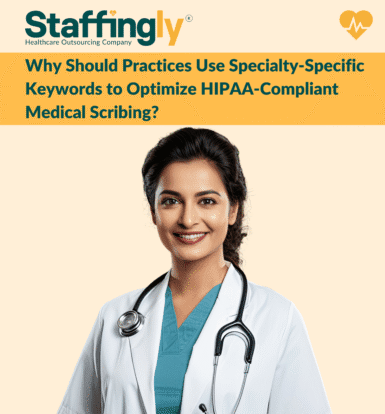
Why Should Practices Use Specialty-Specific Keywords to Optimize HIPAA-Compliant Medical Scribing?
Medical scribing was designed to take paperwork off providers’ plates, but not all documentation is created equal. When scribes fail to use specialty-specific language and keywords, notes become vague, coding accuracy suffers, and compliance risks grow. 💬 “We had to rework multiple notes because they didn’t reflect cardiology-specific terminology. It slowed billing and raised red flags.” The solution isn’t just faster scribing it’s smarter scribing. Specialty-specific keywords help practices capture the right details for coding, compliance, and patient care. Why
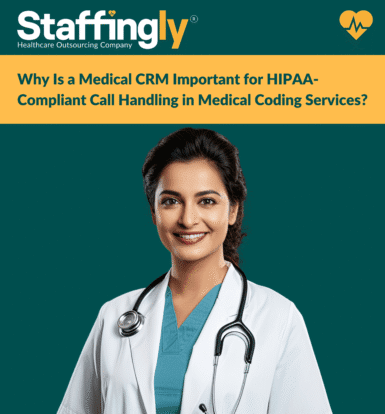
Why Is a Medical CRM Important for HIPAA-Compliant Call Handling in Medical Coding Services?
In the healthcare industry, managing patient information securely is paramount. This includes ensuring compliance with the Health Insurance Portability and Accountability Act (HIPAA) during all communications, especially when it comes to call handling. A Medical Customer Relationship Management (CRM) system plays a crucial role in maintaining HIPAA compliance while improving the efficiency of medical coding services. When used correctly, a medical CRM can help streamline call handling, protect sensitive patient data, and improve overall coding accuracy. The Role of a
 Book a Demo to Build Your Team Today!
Book a Demo to Build Your Team Today!


 Read Case Studies
Read Case Studies 



 Virtual Medical Assistants
Virtual Medical Assistants



